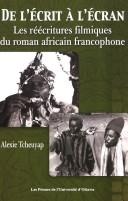| Listing 1 - 2 of 2 |
Sort by
|
Book
Year: 2004 Publisher: Johns Hopkins University Press
Abstract | Keywords | Export | Availability | Bookmark
 Loading...
Loading...Choose an application
- Reference Manager
- EndNote
- RefWorks (Direct export to RefWorks)
William Faulkner occupied a unique position as a modern writer. Although famous for his modernist novels and their notorious difficulty, he also wrote extensively for the "culture industry," and the works he produced for it—including short stories, adaptations, and screenplays—bore many of the hallmarks of consumer art. His experiences as a Hollywood screenwriter influenced him in a number of ways, many of them negative, while the films turned out by the "dream factories" in which he labored sporadically inspired both his interest and his contempt. Faulkner also disparaged the popular magazines—though he frequently sold short stories to them.To what extent was Faulkner's deeply ambivalent relationship to—and involvement with—American popular culture reflected in his modernist or "art" fiction? Peter Lurie finds convincing evidence that Faulkner was keenly aware of commercial culture and adapted its formulae, strategies, and in particular, its visual techniques into the language of his novels of the 1930s. Lurie contends that Faulkner's modernism can be best understood in light of his reaction to the popular culture of his day. Using Theodor Adorno's theory about modern cultural production as a framework, Lurie's close readings of Sanctuary, Light in August, Absalom! Absalom!, and If I Forget Thee, Jerusalem uncover the cultural history that surrounded and influenced the development of Faulkner's art. Lurie is particularly interested in the influence of cinema on Faulkner's fiction and especially the visual strategies he both deployed and critiqued. These include the suggestion of cinematic viewing on the part of readers and of characters in each of the novels; the collective and individual acts of voyeurism in Sanctuary and Light in August; the exposing in Absalom! Absalom! and Light in Augustof stereotypical and cinematic patterns of thought about history and race; and the evocation of popular forms like melodrama and the movie screen in If I Forget Thee, Jerusalem. Offering innovative readings of these canonical works, this study sheds new light on Faulkner's uniquely American modernism.
Film adaptations. --- American fiction --- Motion pictures --- Popular culture --- History --- History --- Faulkner, William, --- Film and video adaptations. --- Literary theory

ISBN: 2760326942 2760315754 2760305805 Year: 2005 Publisher: Les Presses de l’Université d’Ottawa | University of Ottawa Press
Abstract | Keywords | Export | Availability | Bookmark
 Loading...
Loading...Choose an application
- Reference Manager
- EndNote
- RefWorks (Direct export to RefWorks)
De l'écrit à l'écran est le premier ouvrage qui aborde la question de la réécriture filmique du roman africain francophone. Il se sert de la sémiologie de l'image, de la poétique et des théories post-coloniales pour définir les enjeux théoriques, idéologiques et sémantiques régissant le passage des textes littéraires au cinéma. Il identifie des paramètres importants dans la poétique de l'écriture et montre le rôle de l'acte créateur dans l'altérité du texte dérivé, filmique, par rapport au texte de départ, littéraire. De ce fait, il formule des propositions novatrices par rapport aux inte
Motion pictures --- Motion pictures and literature --- African literature (French) --- Film adaptations. --- Adaptations, Film --- Books, Filmed --- Filmed books --- Films from books --- Literature --- Motion picture adaptations --- French literature --- Literature and motion pictures --- Moving-pictures and literature --- Cinema --- Feature films --- Films --- Movies --- Moving-pictures --- Audio-visual materials --- Mass media --- Performing arts --- Film adaptations --- Adaptations --- African authors --- History and criticism --- Recit filmique. --- Cinema et litterature --- Litterature africaine (française) --- Adaptations cinematographiques. --- Film and video adaptations. --- Adaptations cinematographiques et televisees. --- roman africain --- adaptation cinématographique --- littérature --- récit filmique --- Français (langue) --- cinéma
| Listing 1 - 2 of 2 |
Sort by
|

 Search
Search Feedback
Feedback About
About Help
Help News
News